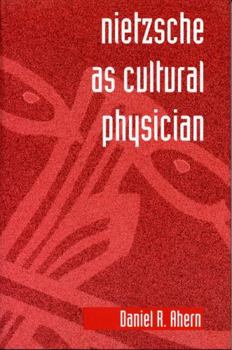Nietzsche as Cultural Physician
Select Format
Select Condition 
Book Overview
In this new interpretation of Nietzsche's thought, Daniel Ahern examines Nietzsche's understanding of physiology and argues that Nietzsche saw himself in the role of a ''physician'' of culture. Through what he calls Nietzsche's ''clinical standpoint, '' Ahern describes Nietzsche's views on the history of Western culture in terms of the ''physiological dynamics'' of exhaustion, decadence, sickness, and health. This physiology is a simultaneous interpretation of the will to power and constitutes both Nietzsche's ''diagnoses'' of the ''spiritual'' sickness of modern nihilism and its possible cure.
To describe how ''spirit'' can be both a force of degeneration and vitality, Ahern studies Nietzsche's perception of the history and culture of both the ancient Greeks and Jews. In doing so, he provides a sound textual basis for confronting the potentially inflammatory aspects of Nietzsche's little discussed cultural criticism.
This book marks the first serious exploration of Nietzsche's diagnosis and prognosis for modernity and of the centrality to Nietzsche's thought of his conception of himself as a physician of culture.
Related Subjects
Philosophy




